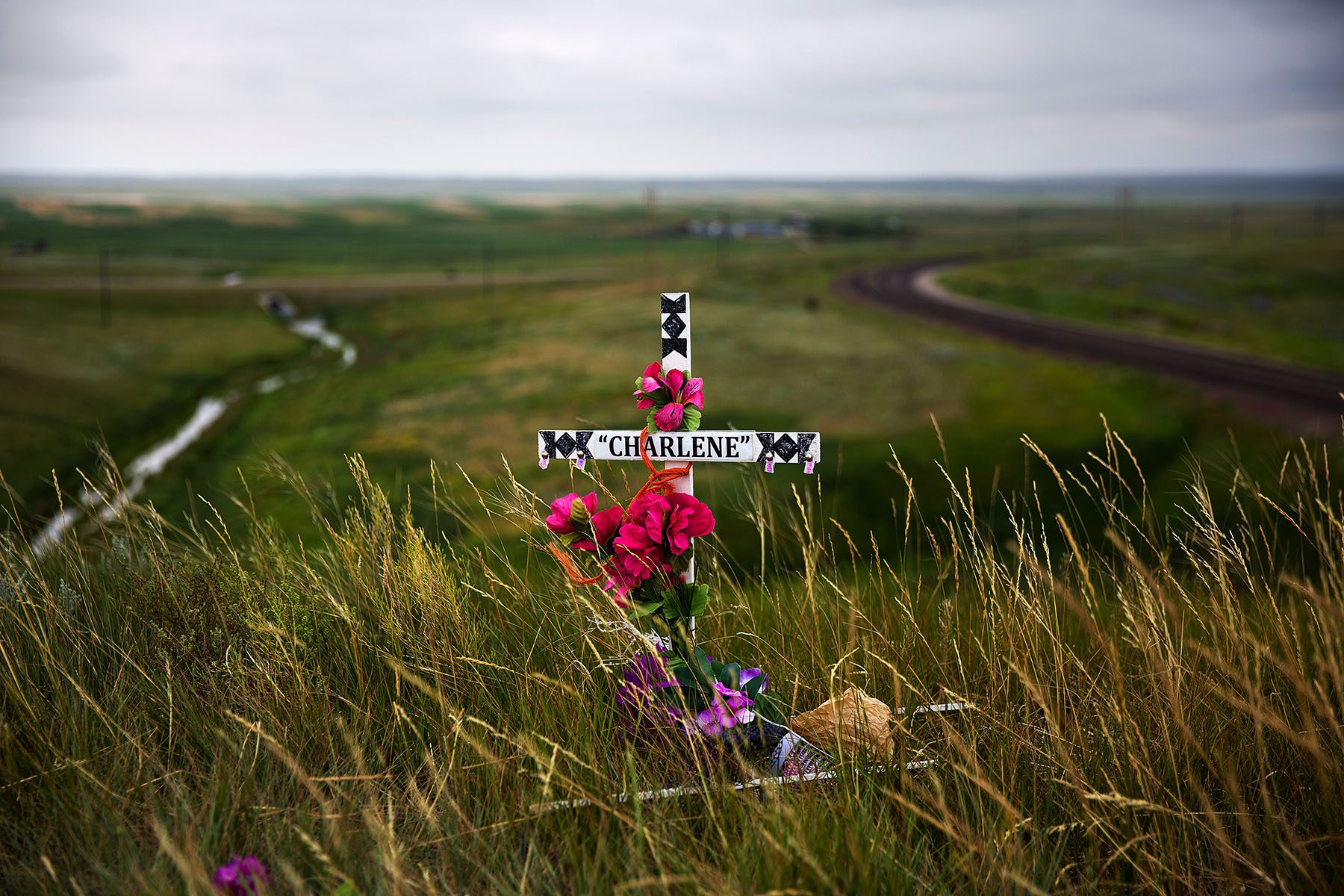President Joe Biden signed an executive order Monday aimed at improving public safety and criminal justice for Native Americans, who are targets of violent crime at a rate much higher than the national average.
In the executive order, the Biden administration committed to working with tribal leaders when creating policy that affects their populations, coordinating a federal law enforcement strategy across departments, supporting tribal law enforcement agencies, improving data collection and strengthening community-based services for survivors.
“Generations of Native Americans have experienced violence or mourned a missing or murdered family member or loved one, and the lasting impacts of such tragedies are felt throughout the country,” Biden said in a statement.
More than 5.6 million people identify as an American Indian or Alaskan Native, according to 2019 census estimates. Nearly 85 percent of Indigenous women said they had experienced violence and about half of Indigenous women have experienced sexual violence and physical violence by an intimate partner. The vast majority of Native American survivors also report being harmed by a non-Indigenous person, according to the Biden administration.
In 2020, Congress passed two pieces of legislation — Savanna’s Act and the Not Invisible Act of 2019 — to address some of these shortcomings. However, the Department of Justice and Department of the Interior have still not fulfilled certain requirements set by those acts, according to GAO.
Biden said that previous executive actions have not been sufficient to “reverse the epidemic” of violence against American Indians.
“For far too long, justice has been elusive for many Native American victims, survivors and families,” Biden said.
Tribal leaders have long spoken about an apparent lack of urgency to Indigenous women murder cases because of historic and systemic racism and prejudice. The total number of missing or murdered women, however, is unknown, according to the Government Accountability Office (GAO). After reviewing the federal response to what officials and tribal leaders have called “a crisis,” the GAO highlighted reasons why the data is incomplete and provided recommendations to improve the federal response. For instance, fear or mistrust of law enforcement leads to underreporting, and misclassifications of race and manner of death often muddy the numbers.
In addition, federal law does not require tribal law enforcement agencies to report missing children under the age of 21, according to a report published last month. And federal, state and local law enforcement agencies are not required to report those over the age of 21 who are missing.
To further complicate the government’s ability to address the violence, the location of death affects who is responsible for investigating and exacting justice. For example, if an Indigenous woman was murdered off of tribal land, the case would fall under the state to prosecute. But if an Indigenous woman is killed by an Indigenous person on tribal lands, the case would fall under federal and tribal jurisdiction — unless the murder occurred in Alaska, California, Minnesota, Nebraska, Oregon or Wisconsin — where it would fall under state and tribal jurisdiction.
In all cases, however, tribes have no jurisdiction over murder cases where the accused is not a Native American — even in the cases of murdered Indigenous people. The Violence Against Women Act Reauthorization of 2013, however, recognized tribes’ power to prosecute non-Native Americans in certain domestic and dating violence crimes.
Secretary of the Interior Deb Haaland, the first Native American Cabinet secretary of an executive branch agency, spoke before Biden signed the order on Monday during the first annual White House Tribal Nations Summit. The summit, which was scheduled during Native American Heritage Month, was held virtually because of the pandemic, which disproportionately wreaked havoc in tribal communities.
“The White House sits on the ancestral homelands of the Anacostan and Piscataway people,” said Haaland, addressing leaders from more than 570 federally recognized American Indian tribes. “I hope that the ancestors are smiling down as we take the next few days to work together on the challenges and opportunities facing Indian country. The fact that I’m making these remarks in front of you today feels like a dream that was envisioned by the ancestors long before now.”
In April, Haaland announced the formation of a new Missing & Murdered Unit focused on Indigenous women and girls. Last year alone, at least 100,000 women of color were reported missing, according to the National Crime Information Center — a database that is only accessible to criminal justice agencies.
In her first eight months since she was confirmed as secretary, Haaland has focused on environmental justice, climate change, missing and murdered Indigenous women and the intergenerational impact of Indian boarding schools that resulted in the death of thousands of Native American children.
“I embraced my identity as a descendant of boarding school survivors and advocated for my community by organizing indigenous voters to increase our presence at the polls, so that we would have a voice in our government’s decisions,” Haaland told tribal leaders. “I knew even then that in spite of seemingly insurmountable odds, we are still here and we have a voice.”







